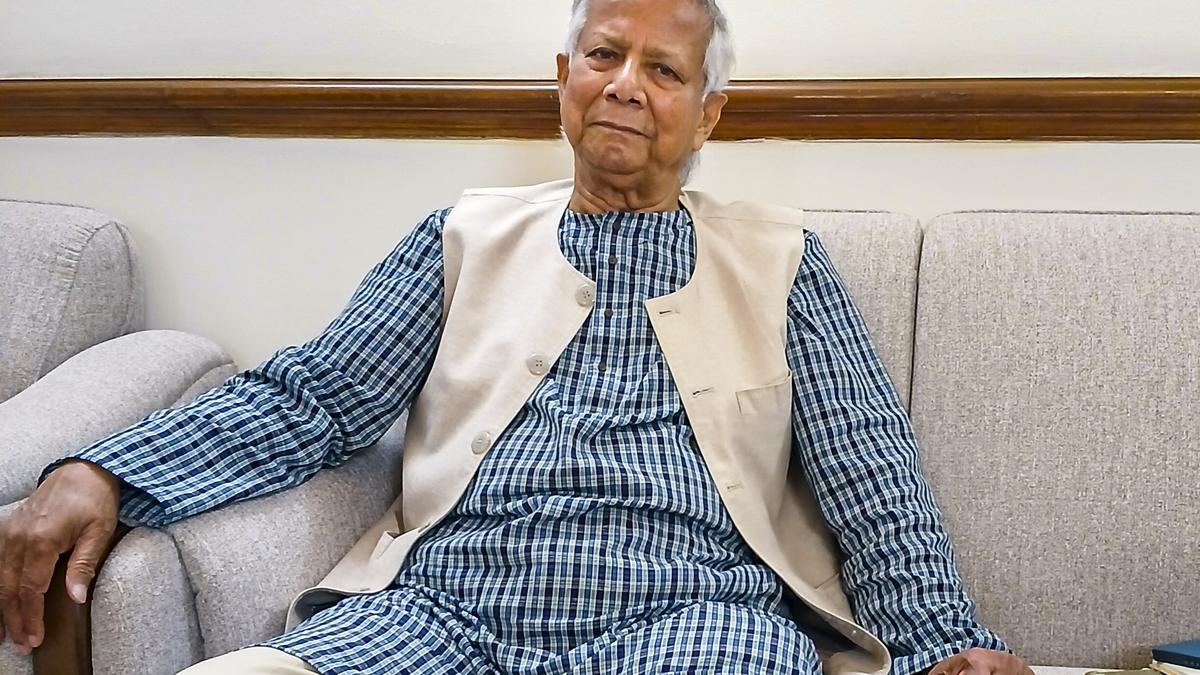Bangladesh’s interim government, under the leadership of Chief Adviser Muhammad Yunus, is navigating a delicate balancing act in its relations with India, seeking to maintain strong ties while simultaneously emphasizing the need for equity and fairness. This delicate stance highlights the complex geopolitical landscape of the region and underscores the evolving dynamics between the two neighboring nations.
The Importance of Equity and Fairness
Yunus, the 84-year-old Nobel laureate and former microfinance pioneer, unequivocally stated that Bangladesh desires a strong relationship with India, but it must be founded on principles of mutual respect and equality. He emphasized that the relationship cannot be one-sided and must benefit both nations equitably. This assertion signifies a departure from the traditionally subservient posture that Bangladesh has sometimes exhibited in the past and signals a desire for a more independent and assertive foreign policy.
Seeking a New Chapter in Relations
Yunus’ comments come against a backdrop of political turmoil in Bangladesh, following the student-led protests that culminated in the resignation and flight of former Prime Minister Sheikh Hasina to India. The interim government, established in the wake of these events, is striving to establish its own foreign policy identity. The emphasis on equitable relations with India could be seen as a way to distinguish itself from the previous government, which was often accused of being too deferential to New Delhi.
Resurgence of Regional Cooperation
Beyond bilateral relations with India, the interim government is also actively promoting regional cooperation. The emphasis on reviving the South Asian Association for Regional Cooperation (SAARC) highlights the government’s commitment to promoting collaborative partnerships within the South Asian region. The SAARC, which has been dormant for years due to political tensions, could provide a platform for Bangladesh to strengthen ties with its South Asian neighbors and contribute to the region’s economic and social development.
India’s Concerns and the Potential for Conflict
Despite the Bangladesh interim government’s stated commitment to equitable relations, India’s defense minister, Rajnath Singh, has expressed concerns about the situation in Bangladesh. Singh’s statement, delivered during a joint commanders conference, called for the analysis of conflicts in Ukraine and Gaza, as well as the current situation in Bangladesh, to “predict” future problems and prepare for the “unexpected.”
Unfounded Concerns and the Search for Explanation
While the statement does not explicitly mention a perceived threat from Bangladesh, it has been interpreted by some as a sign of unease regarding the recent political developments. Bangladesh’s Foreign Affairs Adviser Md Touhid Hossain expressed surprise and confusion over Singh’s remarks, stating that he sees no reason for concern and does not anticipate any immediate threat of conflict.
Navigating Geopolitical Tensions
Singh’s comments may reflect a broader sense of anxiety in India, given the ongoing regional geopolitical tensions and the potential for instability to spill over from neighboring countries. While Bangladesh and India have a long history of close cooperation, the current political uncertainty in Dhaka has potentially heightened anxieties in New Delhi.
Takeaways
The current situation in Bangladesh underscores the complex interplay of internal political dynamics and regional geopolitical tensions.
- The interim government is striving to balance its need for a strong relationship with India with its desire for an independent and equitable foreign policy.
- The emphasis on reviving SAARC signals a broader ambition to engage with its South Asian neighbors and foster regional cooperation.
- While there are concerns within India about potential instability in Bangladesh, Bangladesh maintains that it poses no threat and seeks to maintain peaceful and collaborative relations.
The future of relations between Bangladesh and India will depend on the ability of both sides to navigate these complex dynamics, promoting dialogue, mutual understanding, and respect, while upholding the principles of equity and fairness in their shared relationship.




